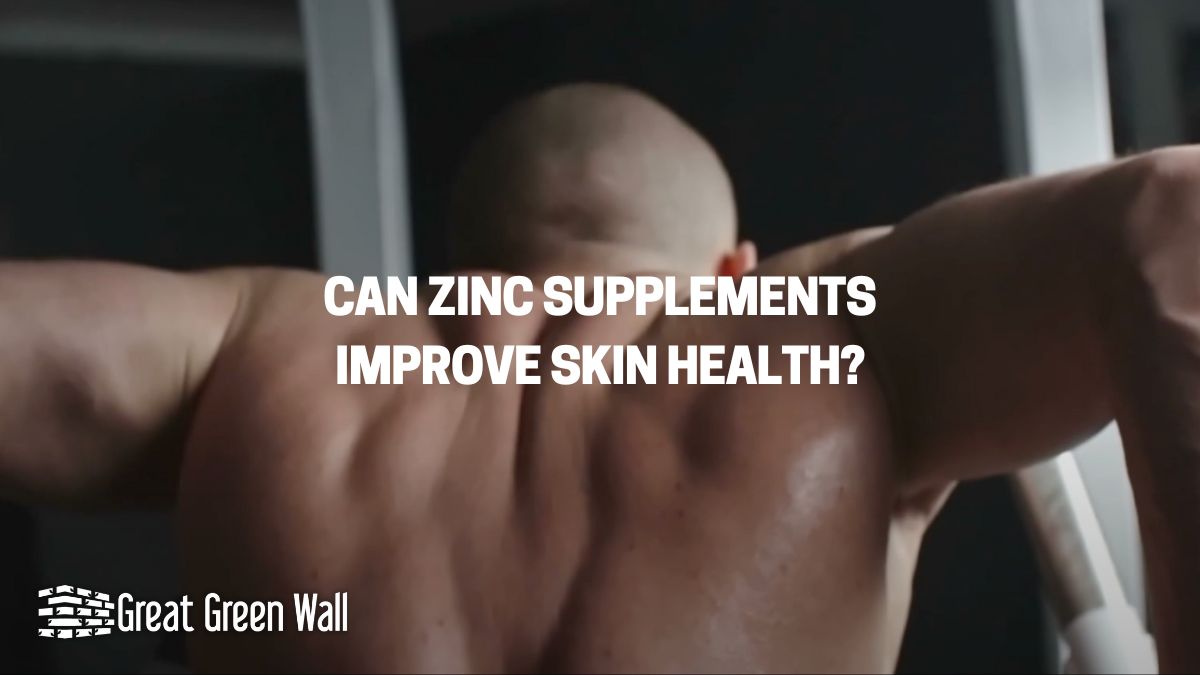I’ve been working on a series of articles highlighting the multiple benefits of everyday vitamins and minerals. After all, many of our readers already know that Zinc is a great testosterone booster, but what if you don’t need T-boosting? And what about other benefits you can get from this essential mineral?
In addition to the multiple health outcomes supported by Zinc (as well as helping avoid dangerous deficiencies), it turns out Zinc plays a pivotal role in our skin health, including the treatment of acne and helping prevent certain carcinoma. So let’s dive into all the skin health areas Zinc can impact, and what the studies say about how it’s doing it.
What You Need to Know
Why Our Skin Needs Zinc
My previous articles about the benefits of Zinc and the risks of Zinc deficiency covered how Zinc is necessary for protein synthesis in our bodies. This use of Zinc means that anything our bodies try to build requires Zinc–from muscle to bone, and yes, skin.
Recent research has indicated that because our skin cells regenerate at such a rapid rate, topical treatment with Zinc may be necessary for optimum delivery of the mineral to the skin cells that need it most.
Another way to understand the importance of Zinc for our skin health is that 6% of all the Zinc in our bodies is in the skin. Similar research has shown that if there is a Zinc deficiency, it can cause the skin to break out in lesions, as the epidermis and dermis aren’t able to renew fast enough to compensate for dying skin cells.

Can Zinc Help with Acne?
The short and simple answer here is a resounding “Yes!” Zinc has been used extensively in Acne treatments, and has been so effective that other researchers have explored it for its possible ability to mitigate other skin inflammation disorders.
The basic function of Zinc’s assistance with Acne stems from its ability to prevent sebum production. This oily substance is the primary cause of acne, and Zinc in topical form has been shown to decrease how much our bodies make.
Not only can Zinc prevent acne breakouts by limiting sebum, but prolonged breakouts due to infection can be combated by Zinc, this time in oral form. Because Zinc has a profound impact on our immune system, if our skin tissue is inflamed for any reason, as with a clogged pore during an acne outbreak, Zinc can help reduce that infection and improve our immune response.
This means Zinc has multiple ways to help clear skin, both before Acne forms, and during an inflammation event from Acne.

This means Zinc has multiple ways to help clear skin, both before Acne forms, and during an inflammation event from Acne.
Other Skin Conditions Zinc can Help
Due to its ability to not only help our bodies regenerate cells faster via protein synthesis, and its ability to help us fight infections, Zinc offers us a way to ease, prevent, or even treat other skin conditions.
Here’s a list taken directly from clinical research in which Zinc not only helped treat, but in some cases helped prevent, skin conditions and infections.
Warts
Commonly caused by an infection from the Papilloma virus, Zinc helps prevent it from the start; one study saw 80% of patients had a reduction in warts after topical treatment with Zinc.
Cutaneous Leishmaniasis
This skin affliction hits over a million people worldwide, mostly in tropical areas. One study found that taking an oral Zinc supplement helped cure it in over 96% of patients.
Rosacea
More common in Northern climes, this skin malady is often treated with a complex mixture of drugs. But recent research has found that 100 mg of Zinc, three times per day, significantly reduced symptoms in a placebo controlled, double-blind study.
Dandruff
Also known by its medical name, Seborrhoeic dermatitis, is readily treatable by a shampoo of around 1% Zinc; check the label of many shampoos, and you’ll find that Zinc is often the only active ingredient.
Odds and Ends
By this point, you may have been a bit nauseated by the discussion of certain skin conditions. I won’t go into much further detail, but the previous article I discussed also mentioned Zinc as being successful in the treatment of the following skin disorders, as well:
Final Word
Zinc has proven its worth, once again. We’ve known for decades that Zinc is an essential mineral, necessary for the very basic functions of life. But we’re also learning that outside of helping keep us alive, Zinc supplementation can also help with skin conditions and health. Either taking it as an oral supplement or as a topical treatment can help us keep in optimum skin health, even treating a wide array of conditions.

